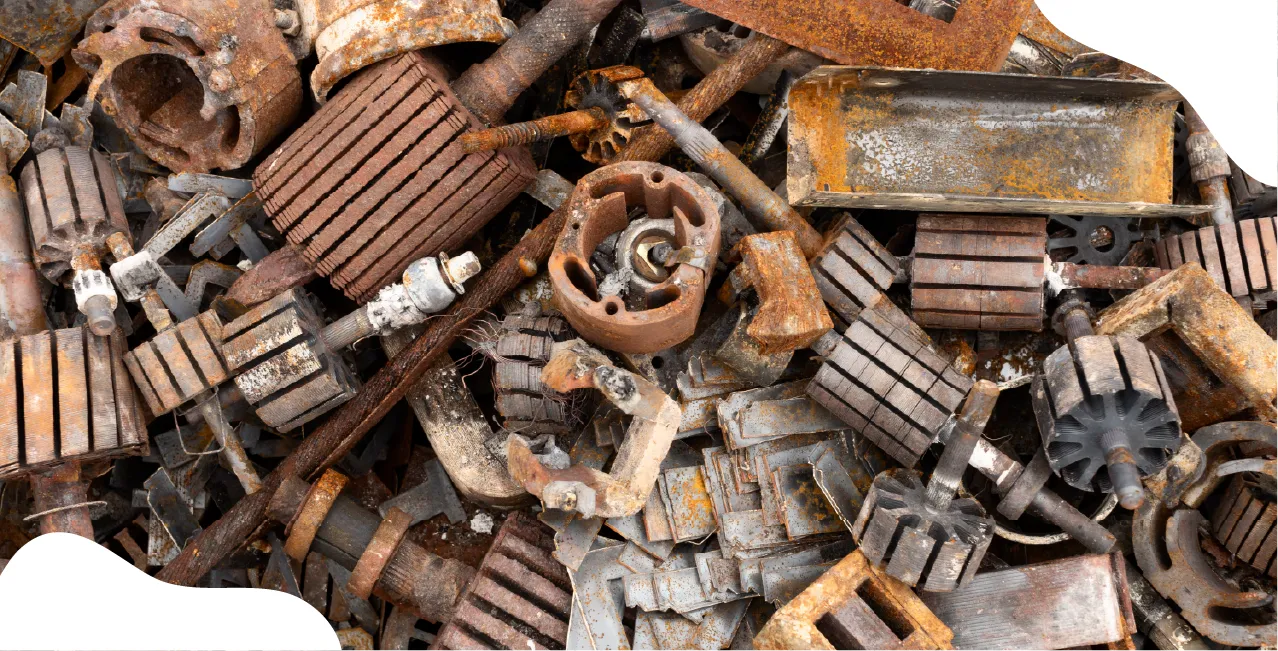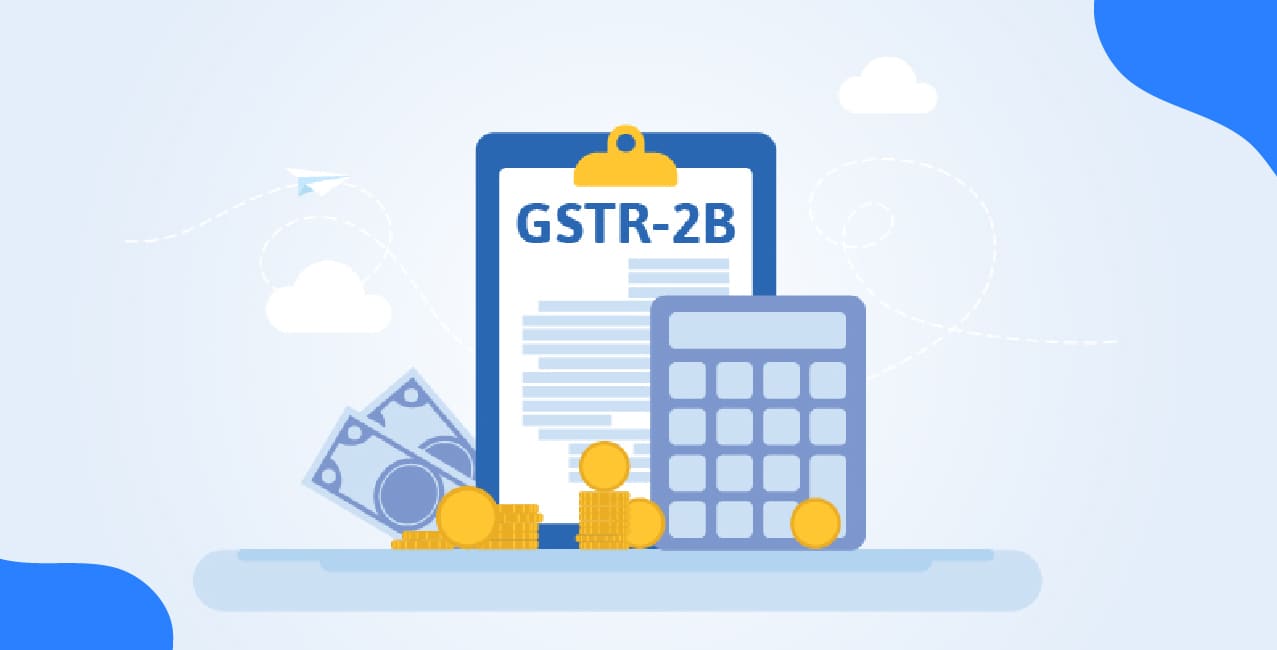GST on Scrap Sale – Tax Rate, HSN Code & Billing Rules

Check Your Loan Eligibility Now
By continuing, you agree to LoansJagat's Credit Report Terms of Use, Terms and Conditions, Privacy Policy, and authorize contact via Call, SMS, Email, or WhatsApp
Rakesh, a scrap dealer based in Pune, sells aluminium waste scrap to a registered metal recycling plant. The invoice value is ₹200,000. According to the GST law, aluminium scrap attracts 18% GST. Therefore, the GST amounts to ₹36,000 (₹200,000 × 18%). This brings the total invoice value to ₹236,000.
Since the buyer is a registered dealer, they must deduct tax at source (TDS) at 2%, which equals ₹4,720. As a result, Rakesh receives ₹231,280.
This example highlights how important it is to understand the GST implications when selling scrap in India.
What is Scrap Under GST?
In business, ‘scrap’ refers to discarded waste material that can be reused or recycled. The GST regime does not provide a separate legal definition for ‘scrap’, but the government taxes it based on the nature of the material and the corresponding HSN code.
Scrap does not need to be manufactured or mechanically processed to be taxable. The GST rate depends on the material type, and businesses can usually claim Input Tax Credit (ITC) when they purchase scrap for commercial use.
GST Rate on Scrap Sale with HSN Code
Accurate knowledge of the applicable GST rate and HSN code for each type of scrap material is crucial in recycling and waste management, ensuring both regulatory compliance and correct invoicing.
Let’s start with a practical numerical example to understand how GST applies to scrap sales in a real-world situation.
Example: GST on Copper Waste Scrap
Vijay is a registered scrap dealer based in Indore. He sells copper waste scrap worth ₹5,00,000 to a cable manufacturing company that uses recycled copper.
- HSN Code: 7404
- Applicable GST Rate: 18%
GST Calculation:
- GST Amount = ₹5,00,000 × 18% = ₹90,000
- Total Invoice Value = ₹5,00,000 + ₹90,000 = ₹5,90,000
Now, since both Vijay and the buyer are registered under GST, the buyer can claim Input Tax Credit (ITC) on the ₹90,000 paid.
This example highlights how correctly identifying the HSN code and GST rate helps businesses maintain compliance while ensuring smooth credit flow.
HSN Code and GST Rate for Scrap Materials in India
Here’s a comprehensive list of commonly traded scrap materials, their respective HSN Codes, and the applicable GST rates:
Why These GST Rates Matter?
Knowing why different scrap materials are taxed at varying GST rates is essential for suppliers and buyers in the recycling and manufacturing industries. Authorities determine these rates based on usage, value, environmental impact, and the material’s potential for industrial reuse.
1. 18% GST Category – High-Value Metal Scraps
Metals such as copper, aluminium, tin, zinc, steel, bronze, nickel, and cermets are subject to 18% GST. Why? These materials are:
- Widely used in automobiles, electronics, infrastructure, and heavy machinery.
- Often reprocessed and reintroduced into the manufacturing chain
. - Traded in large volumes, sometimes internationally.
This higher tax rate allows buyers to claim full Input Tax Credit (ITC), helping reduce their net GST burden.
Example: Ramesh, a Delhi-based manufacturer of electrical components, purchases ₹10,00,000 worth of copper scrap (HSN 7404) from a certified scrap vendor.
- GST Rate: 18%
- GST Paid: ₹1,80,000
- Total Invoice: ₹11,80,000
Because the copper is used in his production process, Ramesh can claim the ₹1,80,000 as ITC when filing GST returns, reducing his tax outgo.
2. 5% GST Category – Organic and Common Recyclables
Items like paper waste, wood scrap, some rubber materials, packing crates, and e-waste are taxed at 5% GST. These materials:
- Have a lower market value compared to metals.
- They are commonly recycled in local markets with minimal processing.
- Often form part of packaging, stationery, or day-to-day disposables.
This lower tax rate encourages recycling at the grassroots level and ensures that smaller businesses in waste management remain viable.
Example: Neha runs a mid-sized packaging unit in Pune. She sells wooden crate scrap (HSN 4415) worth ₹2,00,000 to a recycling plant.
- GST Rate: 5%
- GST Collected: ₹10,000
- Total Invoice: ₹2,10,000
The buyer, being a GST-registered business, can claim ₹10,000 as ITC, while Neha remains compliant without overburdening her clients.
3. 3% and 0% Rates – Special Waste Categories
- 3% GST: Applied to precious metal waste, like scrap of gold, silver, or platinum (HSN 7112). Since these materials are extremely valuable, even a small percentage tax results in significant revenue.
- 0% GST: Given to municipal waste, clinical waste, and sewage sludge (HSN 3825). These are public health and sanitation-related materials, mostly handled by government authorities or NGOs. Taxing them could discourage proper disposal and create environmental hazards.
Example: A municipal corporation sells a consignment of sewage treatment residue to a bio-processing unit.
- HSN: 3825
- GST Rate: 0%
- Total Invoice: ₹0 GST
This exemption ensures that such public sanitation-related waste is recycled or treated without adding a tax burden.
4. 12% GST Category – Regulated Pharmaceutical Waste
Pharmaceutical waste, excluding contraceptives, is taxed at 12% under HSN code 3006. This category includes:
- Expired medicines
- Rejected drug batches
- Scrapped medical compounds
Why 12%? Disposal of such materials is environmentally sensitive and may still hold chemical or industrial value upon treatment. The tax helps monitor and regulate such transactions while allowing recyclers to reclaim ITC.
Example: A pharma company in Hyderabad discards a batch of expired antibiotics, selling the waste to a chemical recycler for ₹5,00,000.
- GST Rate: 12%
- GST Charged: ₹60,000
- Total Invoice: ₹5,60,000
Since the recycler is GST-registered, they can claim the ₹60,000 as ITC, while the government keeps track of pharmaceutical waste movement.
Latest GST Updates for Scrap Dealers:
The scrap industry has seen a few important regulatory updates in 2024–2025 to ensure improved tax compliance, especially for businesses dealing with metal scrap. Below are the key updates that every scrap dealer or buyer should be aware of:
1. 54th GST Council Meeting – New TDS Rule Introduced
As per the 54th GST Council meeting, a 2% Tax Deducted at Source (TDS) is now applicable when a registered person sells metal scrap to another registered business. This change is aimed at increasing transparency and accountability in scrap sales, particularly in high-volume metal trading.
Who is affected?
This rule impacts all transactions between two registered entities, including manufacturers, recyclers, and authorised scrap dealers.
2. GSTN Advisory – TDS Reporting Now Mandatory from October 2024
In line with updated GST compliance rules, the Goods and Services Tax Network (GSTN) has issued an advisory that requires all registered taxpayers dealing in scrap to report their TDS deductions accurately in their GST returns, beginning in October 2024.
This means if you're a scrap dealer or buyer involved in such transactions, you must:
- Deduct and deposit TDS at the prescribed rate
- Reflect the deduction properly in your GSTR-7 form
- Provide the counterparty with proper documentation
Failing to do so may result in compliance penalties or a delay in claiming Input Tax Credit (ITC).
3. CBDT Advisory – Mandatory GST Registration via REG-07 for Scrap Dealers
The Central Board of Direct Taxes (CBDT) has also released an advisory stating that scrap dealers must obtain a specific GST registration using Form REG-07. This form is to be used by those who are required to deduct TDS or collect TCS under the GST law.
The GST portal is expected to enable this registration pathway soon, and dealers should keep an eye out for its release.
TDS Applicability on Scrap Sales
Under Section 51 of the CGST Act, any registered buyer purchasing metal scrap from a registered dealer must deduct 2% TDS on the entire invoice value, including the GST component.
This is a significant shift because earlier TDS was generally calculated on the base amount. Now, even the GST amount is included in the TDS base, leading to a slightly higher deduction.
TDS Calculation Example:
Let’s consider a real-world transaction to understand how this works.
Example: A registered scrap dealer sells metal scrap worth ₹1,00,000 to a registered manufacturing unit. The GST applicable is 18%, i.e., ₹18,000.
- Invoice Total: ₹1,18,000 (₹1,00,000 + ₹18,000)
- TDS Rate: 2% (as per GST Council directive)
- TDS Amount: ₹1,18,000 × 2% = ₹2,360
So, the buyer will deduct ₹2,360 as TDS and pay only ₹1,15,640 to the scrap dealer. The remaining ₹2,360 is deposited with the government and can be viewed in the GSTR-7 return filed by the buyer.
Impact for Scrap Dealers:
- The dealer receives slightly less in hand but gets a TDS credit, which can be adjusted while filing returns.
- Proper record-keeping and reconciliation become critical for seamless return filing.
Input Tax Credit (ITC) on Scrap Purchases
Yes, businesses can claim Input Tax Credit (ITC) on scrap purchases under GST, but only if certain conditions are met. The scrap must be used for business-related activities like manufacturing, trading, or providing services, and proper documentation must be maintained.
Example: Imagine a small manufacturing company named GreenMetal Industries buys ₹1,00,000 worth of aluminium scrap from a registered vendor. The GST charged is 18%, which amounts to ₹18,000.
- Total Invoice Amount: ₹1,18,000
- Eligible ITC: ₹18,000
Since the company uses the aluminium scrap to manufacture engine parts, and they have received a valid tax invoice with the vendor’s GSTIN and correct HSN code, they can claim the entire ₹18,000 as ITC in their monthly GST return (GSTR-3B).
However, if the same company had purchased scrap from an unregistered seller or failed to obtain a valid invoice, the ITC would not be claimable, regardless of its business use.
Key Conditions to Claim ITC on Scrap:
- The scrap must be used for business, manufacturing, trading, or service.
- A valid tax invoice with the correct HSN code, GSTIN, and GST rate must be available.
- The supplier must file GSTR-1 properly, so your purchase reflects in your GSTR-2A/2B.
- No ITC is allowed on scrap for personal use or items bought without an invoice.
Strike by Scrap Traders – What Really Happened?
In late 2024, the Iron Scrap Traders Association of Mandi Gobindgarh—one of India’s largest metal trading hubs- announced an indefinite strike in protest against the GST authorities. The strike followed rising disputes over allegations of fake billing and increased enforcement actions by tax officials.
Traders’ Concerns:
- All transactions were reportedly done via proper banking channels.
- Invoices were correctly generated, and suppliers filed GSTR-1 returns on time.
- Yet, many traders received notices for bogus billing or mismatched invoices.
- GST officials reportedly began blocking ITC or demanding excessive clarifications.
This strike highlighted the need for clearer implementation and less harassment under GST, especially for traders working with high-volume, low-margin business models.
Challenges of GST Compliance for Small Scrap Traders
While large businesses may have tax teams or software support, small and mid-size scrap traders face unique challenges:
Key Issues:
- Complexity in GST return filing (GSTR-1 and GSTR-3B) due to frequent and small-value transactions
- Lack of digital literacy, especially in rural or semi-urban scrap yards
- Incorrect HSN codes, leading to GST mismatches and delayed ITC
- Vendor-side non-compliance, if your supplier doesn’t file GSTR-1, your ITC is blocked
- Delayed ITC refunds, which impact working capital for micro-enterprises
Example – Small Dealer’s Dilemma:
Sharma Scrap Traders is a small firm that buys mixed scrap metal, rubber, and e-waste worth ₹500,000 each month. The company deals with more than 20 vendors, many of whom delay filing GSTR-1 or submit incorrect HSN codes.
As a result, tax authorities partially disallow Sharma’s Input Tax Credit (ITC) claim of ₹90,000 (18%), which hurts the company’s monthly cash flow. This situation highlights the need for GST software tools or professional support, especially when managing a high volume of transactions.
Conclusion
GST on scrap sales in India, especially on metals, plastic, and electronic waste, has become a well-regulated area, with tax rates ranging from 5% to 18% depending on the type of material. While claiming Input Tax Credit (ITC) on scrap purchases is allowed for business use, it is only possible if proper documentation and vendor compliance are ensured.
Recent government updates, such as the mandatory 2% TDS deduction, compulsory GST REG-07 registration, and GSTR return precision, signal a tighter regulatory environment. The 2024 trader strike further exposed the need for clearer rules and better support for honest scrap dealers.
For scrap businesses to remain profitable and compliant, it’s critical to know the correct HSN codes, issue valid invoices, and monitor your suppliers’ GST filings. As the sector grows more digitised and automated, the right tax practices will help traders of all sizes maintain cleaner books and avoid penalties.
FAQs:
Q1: Can I claim ITC on scrap purchased from a registered vendor?
Yes, but only if you have a valid tax invoice and use the scrap for business.
Q2: What is the GST rate on aluminium scrap?
Aluminium scrap is taxed at 18% under HSN code 7602.
Q3: Is TDS applicable to scrap sales between registered businesses?
Yes, as per the 54th GST Council update, 2% TDS must be deducted.
Q4: Can I sell scrap without GST registration?
No, if your turnover exceeds the threshold or you're dealing in taxable scrap, GST registration is mandatory.
Q5: What’s the biggest risk in claiming ITC on scrap purchases?
Your ITC can be blocked or disallowed if your vendor doesn’t file GSTR-1 correctly or the HSN code is incorrect.
Other Important GST Pages | ||||
About the author

LoansJagat Team
Contributor‘Simplify Finance for Everyone.’ This is the common goal of our team, as we try to explain any topic with relatable examples. From personal to business finance, managing EMIs to becoming debt-free, we do extensive research on each and every parameter, so you don’t have to. Scroll up and have a look at what 15+ years of experience in the BFSI sector looks like.
Subscribe Now
Related Blog Post
Recent Blogs
All Topics
Contents
Quick Apply Loan
Consolidate your debts into one easy EMI.
Takes less than 2 minutes. No paperwork.
10 Lakhs+
Trusted Customers
2000 Cr+
Loans Disbursed
4.7/5
Google Reviews
20+
Banks & NBFCs Offers
Other services mentioned in this article








